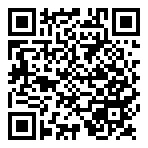Chapter 18
T
he Cub Scout den that Rita had found for Cody met at Golden Lakes Elementary School, a few miles from our house. We got there a little early and sat in the car for a minute, and Cody watched without expression as a handful of boys his approximate age ran into the school wearing their blue uniforms. I let him sit and watch, thinking that a little preparation time might do us both some good.A few cars pulled up. More boys in blue uniforms ran into the building, apparently eager to get inside. Anyone equipped with a heart would certainly have found it warming at the sight—one parent was so enamored of the scene that he stood beside his van and video-taped the stream of boys running past and inside. But Cody and I simply sat and watched.
“They’re all the same,” Cody said softly.
“Just on the outside,” I said. “It’s something you can learn to do.”
He looked at me blankly.
“It’s just like putting on one of those uniforms,” I said. “When you look the same, people think you are. You can do this.”
“Why?” he said.
“Cody,” I said, “we have talked about how important it is to look normal.” He nodded. “This will help you figure out how to act like other kids. It’s part of your training.”
“Other part?” he said, with the first eagerness he had shown, and I knew he was longing for the simple clarity of the knife.
“If you do this part well, we will do the other part,” I said.
“An animal?”
I looked at him, saw the cold gleam in his small blue eyes, and knew there was no going back from where he already was; the only thing I could hope for was the long and difficult shaping that had been done to me. “All right,” I said. “We’ll do an animal.”
He watched me for another long moment, and then he nodded back, and we climbed out of the car and followed the pack into the cafeteria.
Inside, the other boys—and one girl—ran around making lots of loud noise for the first few minutes. Cody and I sat quietly in our tiny, molded plastic chairs, at a table just barely tall enough to smack you in the kneecaps if you tried to walk around it. He watched the others at their noisy play without expression and without any attempt to join in, and that was a starting point, something I could do with him. He was far too young to be known as a brooding loner—we needed to get his disguise in gear.
“Cody,” I said, and he looked at me with the same lack of expression. “Look at the other kids.”
He blinked, and then swivelled his head to take in the rest of the room. He watched without comment for a minute, and then turned back to me. “Okay,” he said softly.
“It’s just that they’re all running around and having fun, and you’re not,” I said.
“No,” he said.
“So you will stand out,” I said. “You have to pretend you’re having fun here.”
I don’t know how,” he said, a major speech for him.
“But you have to learn,” I said. “You have to look like all the others, or...”
“Well, well, what’s wrong with you, little guy?” a voice boomed out. A large and offensively cheerful man came over and put his hands on his bare knees so he could shove his face closer to Cody’s. He was bursting out of a Cub Scout leader’s uniform, and the sight of his hairy legs and large belly seemed very wrong. “You’re not feeling shy, are you?” he said with a huge and terrible grin.
Cody stared back at him without blinking for a long moment, and the man’s grin began to fade a little. “No,” Cody said at last.
“Well, good,” the man said, straightening up and moving back a step.
“He’s not really shy,” I said. “He’s just a little tired today.”
The man turned his grin on me, looked me over for a moment, then stuck out his hand. “Roger Deutsch,” he said, holding out his hand. “I’m the den master. I just like to get to know everybody a little before we start.”
“Dexter Morgan,” I said, shaking his hand. “This is Cody.”
Deutsch held his hand out to Cody. “Hi, Cody, glad to meet you.” Cody looked at the hand, then at me; I nodded at him, and he put his small hand into the meaty paw held out in front of him. “Hi,” he said.
“So,” Deutsch said relentlessly, “what brings you to Scouting, Cody?”
Cody glanced at me. I smiled, and he turned back to Deutsch. “Have fun,” he said, his small, deadpan face looking like he was at a funeral.
“Great,” said Deutsch. “Scouting should be fun. But there’s a serious part, too. You can learn about all kinds of cool things. Is there anything special you really want to learn about, Cody?”
“Animal carving,” Cody said, and I had to fight not to fall out of my tiny chair.
“Cody,” I said.
“No, that’s okay, Mr. Morgan,” Deutsch said. “We do lots of crafts. We can start with soap carving and move on to wood.” He winked at Cody. “If you’re worried about him working with knives, we won’t let him hurt himself.”
It didn’t seem politic to say that I wasn’t worried about Cody hurting himself with a blade in his hand. He already knew very well which end to hold, and he had shown a precocious talent for finding the right way to put in the point. But I was fairly certain Cody could not learn the kind of animal carving he wanted in Scouting—at least not until the Eagle Scout level. So I simply said, “We’ll talk it over with Mom, and see what she says,” and Deutsch nodded his head.
“Great,” he said. “In the meantime, don’t be shy. You just jump in here with both feet, buddy.”
Cody looked at me, and then nodded at Deutsch.
“All right,” Deutsch said, finally straightening up. “Well, let’s get this thing started then.” He nodded at me and turned back to begin rallying the troops.
Cody shook his head and whispered something. I leaned a little closer to him. “What?” I said.
“Both feet,” he said.
“It’s just an expression,” I told him.
He looked at me. “Stupid expression,” he said.
Deutsch had moved across the room, calling for quiet, getting all the kids together, and they were now assembling in the front of the room. It was time for Cody to jump in, even if it was only with one foot at first. So I stood up and held out a hand to him. “Come on,” I said. “This will work out fine.”
Cody didn’t look convinced, but he stood up and looked at the group of normal boys converging on Deutsch. He pulled himself as straight and tall as possible, took a deep breath, and said, “Okay,” and marched over to join the group.
I watched him push carefully through the crowd to find his spot and then stand there, all alone and being as brave as he could be. This was not going to be easy—not for him, and not for me. There would be very natural awkwardness for him as he tried to fit into a group that he had nothing in common with. He was a tiny wolf trying to grow lamb’s wool and learn to say, baaa! And if he howled at the moon even once, the game was over.
And for me? I could only watch, and possibly give him a few pointers in between rounds. I had gone through a similar phase myself, and I still remembered the terrible pain of it; realizing that this was all and forever something for the others and never for me—that laughter, friendship, the sense of belonging, were things I would never really feel. And even worse, once I realized that I was outside all of it, I had to pretend to feel it, learn to show the mask of happiness in order to hide the deadly emptiness inside.
And I remembered the dreadful clumsiness of those first years of trying; the first horrible attempts at laughter, always at the wrong time and always sounding so very inhuman. Even speaking to the others naturally, easily, about the right things and with the right manufactured feelings. Slowly, painfully, awkwardly learning, watching how the others did these things so effortlessly and feeling the added pain of being outside that graceful ease of expression. A small thing, knowing how to laugh. So very inconsequential, unless you don’t know how and have to learn it from watching others, as I did.
As Cody would have to do now. He would have to go through the whole vile process of understanding that he was different and always would be, and then learning to pretend he was not. And that was just the starting point, the first easy leg of the Harry Path. After that things got even more complicated, more difficult and painful, until an entire artificial life was built and hammered into place. All fake, all the time, with only the short and far-too-rare intervals of razor-edged reality to look forward to—and I was passing all this on to Cody, that small and damaged creature who stood up there now so stiffly, watching with such intense focus for a hint of belonging that would never come.
Did I really have the right to force him into this agonizing mold? Merely because I had gone through this, did that truly mean HE had to? Because if I was honest with myself, it had not been working terribly well for me lately. The Harry Path, a thing that had seemed so clear, clean and clever, had taken a turn into the underbrush. Deborah, the one person in the world who should understand, doubted that it was right, that it was even real, and now she lay in the ICU while I floundered around the city slaughtering the innocent.
Was this really what I wanted for Cody?
I watched him follow along through the Pledge of Allegiance, and found no answers there.
And so it was a very thoughtful Dexter who eventually tottered home after the meeting, with a wounded and uncertain Cody in tow.
Rita met us at the door, a look of worry on her face. “How did it go?” she asked Cody.
“Okay,” he said, with a look on his face that said it was not okay.
“It was fine,” I said, sounding a little more convincing. “And it will get much better.”
“Has to,” Cody said softly.
Rita looked from Cody to me and then back again. “I don’t—I mean, did you, did you... Cody. Are you going to keep going?”
Cody looked at me and I could almost see a small and sharp blade flashing in his eyes. “I’ll go,” he said to his mother.
Rita looked relieved. “That’s wonderful,” she said. “Because it really is—I know that you’ll, you know.”
“I’m sure he will,” I said.
My cell phone began to chirp and I answered it. “Yes,” I said.
“She woke up,” Chutsky said. “And she spoke.”
“I’ll be right there,” I said.



 ePub
ePub A4
A4